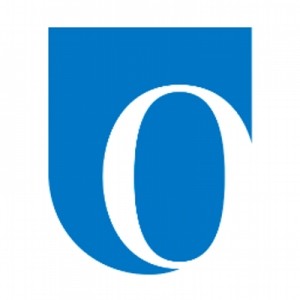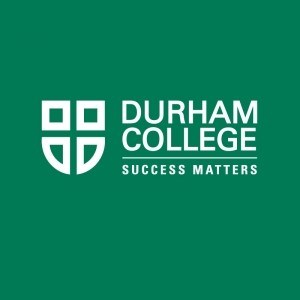Photos of university / #uofwaterloo
The Bachelor of Science in Actuarial Science at the University of Waterloo offers a comprehensive and rigorous curriculum designed to equip students with the essential skills and knowledge necessary for a successful career in the actuarial profession. This program emphasizes a strong foundation in mathematics, statistics, economics, and finance, integrated with specialized courses tailored to actuarial science, such as actuarial modeling, risk management, insurance, and financial mathematics. Students gain practical experience through various projects and internships, preparing them for the demanding actuarial exams recognized internationally by professional organizations like the Society of Actuaries and the Casualty Actuarial Society. The program is uniquely positioned to incorporate the university's renowned co-operative education system, providing students with multiple work term placements that enhance their professional development and industry connections. With access to state-of-the-art facilities and expert faculty members with extensive industry experience, students are encouraged to develop analytical, problem-solving, and communication skills necessary to analyze complex data, assess risks, and advise organizations on financial stability and strategic decision-making. Graduates of the Actuarial Science program at the University of Waterloo are well-prepared to pursue professional designation as actuarial candidates, entering diverse fields including insurance, pension planning, investment, consulting, and government agencies. The program also fosters a strong community of peers and industry mentors, supporting ongoing career growth and lifelong learning in the dynamic field of actuarial science.
The Bachelor of Mathematics in Actuarial Science at the University of Waterloo offers students a comprehensive and rigorous education designed to prepare them for a successful career as an actuary. This program combines foundational courses in mathematics, statistics, finance, and economics with specialized actuarial coursework, providing students with the essential knowledge and skills needed to assess risk and make data-driven decisions in various industries such as insurance, finance, and consulting. Throughout the program, students will engage in practical applications of theoretical concepts, often through real-world case studies and projects, enhancing their problem-solving abilities and analytical thinking. The curriculum is structured to align with professional actuarial examinations, enabling students to progress efficiently toward certification. Students will have opportunities for co-op placements, gaining valuable work experience in actuarial firms, insurance companies, or financial institutions. The program also emphasizes the development of communication skills, teamwork, and ethical judgment—key qualities for successful actuaries. Advanced courses cover areas such as actuarial modeling, loss models, survival models, and enterprise risk management, ensuring graduates are well-equipped to address complex risk management challenges. With a strong foundation in mathematics and an understanding of business and financial principles, graduates of this program are prepared to analyze data, develop predictive models, and contribute meaningfully to their organizations. The University of Waterloo’s actuarial program is renowned for its innovative teaching methods and strong ties to industry, providing students with excellent networking opportunities and access to a vibrant professional community. Graduates can expect to enter a dynamic job market where their analytical expertise and professional credentials will be highly valued across numerous sectors.
The Bachelor of Science in Actuarial Science at the University of Waterloo requires students to complete a comprehensive curriculum designed to prepare them for careers in actuarial work, finance, and risk management. The program mandates the completion of a broad set of core courses, including mathematics, statistics, economics, and business courses, to develop strong analytical and quantitative skills essential for the actuarial profession. Students are required to take at least 20 courses, with several designated as prerequisites for professional accreditation exams administered by organizations such as the Society of Actuaries (SOA) and the Casualty Actuarial Society (CAS). In addition to mandatory coursework, students must participate in co-op work placements, gaining practical experience in actuarial roles, which are integrated into the program structure. The program emphasizes the development of problem-solving skills, statistical analysis, and financial mathematics, with courses focusing on topics such as survival models, insurance mathematics, financial derivatives, and risk theory. Students are encouraged to engage in extracurricular activities, actuarial clubs, and research projects to deepen their understanding of industry practices. To graduate, students must earn a minimum cumulative grade point average (GPA), fulfill co-op requirements, and complete the necessary coursework aligned with the professional actuarial exams. The program's design aims to produce graduates who are well-prepared for initial actuarial exam sitting and entry-level positions in the insurance and finance industries. Furthermore, students must adhere to the university’s academic regulations, including maintaining prerequisite grades, completing required labs and projects, and participating in ethics modules relevant to actuarial work. Overall, the Actuarial Science program at the University of Waterloo offers a rigorous, industry-relevant education structured to meet the needs of aspiring actuaries in a competitive global environment.
The University of Waterloo offers various funding options for students enrolled in the Actuarial Science program to support their academic pursuits. Undergraduate students may qualify for entrance scholarships based on academic achievement, which do not require a separate application and are awarded automatically upon admission. Additionally, the university provides continuing scholarships and awards for outstanding academic performance throughout the degree program. Financial aid opportunities include government loans and grants available to eligible Canadian and international students, facilitating access to education costs. Work-study programs and on-campus employment opportunities enable students to earn income while studying, providing practical experience and financial support concurrently. The university’s co-op program is a significant component of the Actuarial Science curriculum, allowing students to gain paid work experience in actuarial firms and related industries, which can also help offset educational expenses. Moreover, students are encouraged to seek external funding sources such as private scholarships, employer sponsorships, and professional actuarial association bursaries. The cost of tuition for the Actuarial Science program varies depending on residency status and year of study, with detailed estimates available on the university's official website. Living expenses, including accommodation, food, transportation, and study materials, should also be considered when planning finances, and students are advised to prepare a comprehensive budget. The university’s Financial Aid and Awards Office provides guidance and resources to help students navigate financing options and maximize available support. It is recommended that students apply early and regularly check for updated scholarship and bursary opportunities to enhance their financial planning. Overall, the University of Waterloo is committed to providing a range of financial resources to make the Actuarial Science program accessible and affordable for motivated students.
The Bachelor of Mathematics in Actuarial Science at the University of Waterloo is a rigorous undergraduate program designed to prepare students for a career in the actuarial profession. This program offers a comprehensive curriculum that combines mathematics, statistics, finance, economics, and business courses to equip students with the analytical and problem-solving skills required for actuarial work. Students explore core topics such as probability, financial mathematics, risk theory, and actuarial modeling, gaining a solid foundation in quantitative methods essential for assessing and managing financial risks in insurance, pension plans, and other financial institutions.
The program is structured to support students in passing the preliminary actuarial exams administered by professional societies such as the Society of Actuaries (SOA) and the Casualty Actuarial Society (CAS). As part of the degree, students typically engage in experiential learning opportunities, including co-op work placements, where they can apply their classroom knowledge in real-world settings. These work placements are integral to gaining practical experience and are highly valued by future employers.
Students also have access to various resources through the university's Centre for Actuarial Excellence, which offers tutoring, exam preparation support, and networking events with industry professionals. The program emphasizes the development of strong communication skills, ethical judgment, and teamwork abilities, recognizing their importance in the professional actuarial environment.
Graduates of the Bachelor of Mathematics in Actuarial Science often pursue the Associate of the Society of Actuaries (ASA) designation during their studies, and many continue to obtain the full Fellowship designation after gaining professional experience. The University of Waterloo's close ties with the actuarial industry and its reputation for excellence in STEM education make it an ideal place for aspiring actuaries to start and advance their careers. The program's strong empirical and theoretical focus prepares students for diverse opportunities in insurance, consulting, finance, and beyond.



